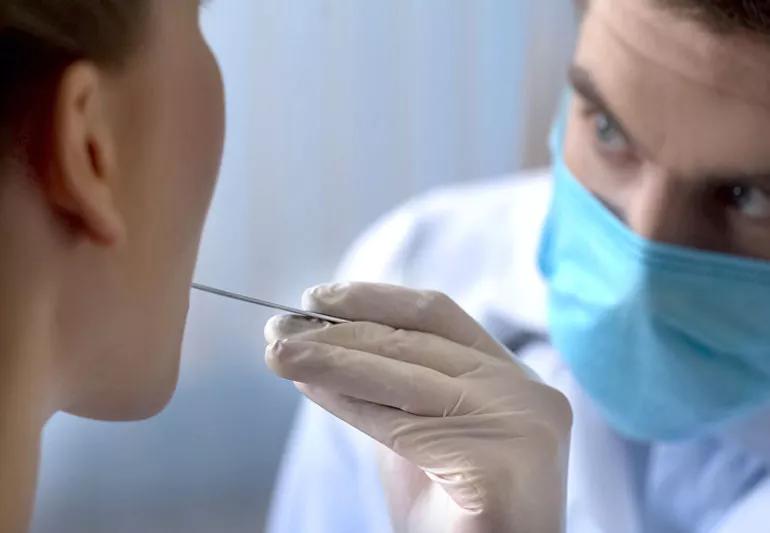A little preparation goes a long way

You just scheduled your first rheumatology appointment — now what? It could seem like a daunting appointment. But with a little preparation, you’ll be able to get the most out of it.
Advertisement
Cleveland Clinic is a non-profit academic medical center. Advertising on our site helps support our mission. We do not endorse non-Cleveland Clinic products or services. Policy
“In my many years as a rheumatologist, I’ve seen patients with a variety of symptoms, including aches and pains,” says rheumatologist Howard R. Smith, MD. “Arthritis may be a symptom of a number of different connective tissue diseases since there are more than 100 types of arthritis. My job is to identify which type of arthritis the patient has and to begin appropriate treatment.”
Your rheumatologist will perform a thorough examination to start. Expect that your first appointment will be an hour or longer — and much of this time is spent talking about your symptoms.
“A thorough examination helps your rheumatologist make a diagnosis so that they may begin to treat you as soon as possible,” explains Dr. Smith. “Especially because many rheumatologic conditions become more difficult to treat over time and respond best to treatment in the early stages.”
However, it’s important to note that these diseases may change or evolve and your rheumatologist may need to see you more than once to make a definite diagnosis.
“The first visit will include a physical exam in which your rheumatologist will search for joint swelling or nodules that may indicate inflammation,” says Dr. Smith. “Lab tests, such as X-rays and blood work, may also supply pieces of the puzzle to assist your rheumatologist in arriving at your diagnosis.”
Advertisement
To help you make the most of a first appointment, follow these three simple tips:
The more you have studied your own symptoms, the more you can help your doctor diagnose your condition. Consider keeping notes in advance of your appointment to bring along.
Ideally, your notes will include:
Alongside any notes that you take about your symptoms, consider bringing any previous X-rays, ultrasounds or MRIs to give to your doctor.
During your appointment, it can be easy to forget some of your questions or to ask those that aren’t as important to you as others you meant to ask. One of the best ways to handle this? Write down your questions before your appointment and put them in order of priority.
“Of course, if you forget, you can always call the office later, but it is best to have your important questions answered in person,” says Dr. Smith.
Common questions include:
It can be overwhelming when a doctor is offering advice about a new diagnosis.
“I notice that when patients bring a notebook or journal, they seem to better capture our conversation,” explains Dr. Smith. “If you bring notes about your symptoms, you can use that same notebook to take notes about what your doctor advises.”
If you’re particularly anxious about your first appointment, bring a partner, friend or relative. They’ll help you remember what your doctor explained and be your advocate.
Advertisement
Following these tips can help you make the most of that first important appointment with your rheumatologist — and help you start your path toward treatment.
Advertisement
Learn more about our editorial process.
Advertisement

What you should and shouldn't eat to avoid flare-ups

Most recommended precautions center around minimizing bruising or swelling

Even one drink can have an impact on your cognitive function leading to slurred speech, blurred vision and impaired memory

Understand who may (and may not) benefit

Lorem ipsum dolor sit amet. Et odio Quis vel ipsam omnis eum alias deleniti et placeat impedit non voluptas galisum hic autem enim et cupiditate aliquid. Est beatae quidem non facilis autem ut commodi nisi aut tempore rerum et dolores voluptatem cum enim optio id sapiente quasi. Ad laboriosam officiis 33 cupiditate sequi ea voluptatum consectetur qui necessitatibus voluptate et quasi doloremque et facere explicabo quo explicabo officia

Seeking help through therapy can be an important step in improving your quality of life when you have UC

Type 2 diabetes isn’t inevitable with these dietary changes

Applying a hot or cold compress can help with pain